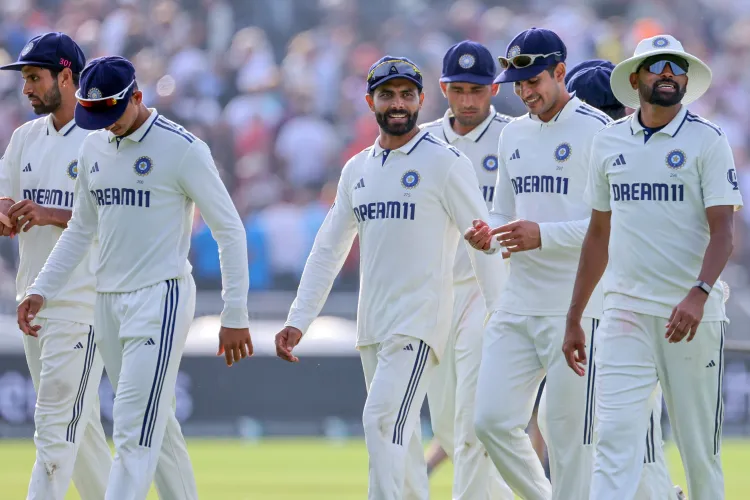What Does Jwala Singh Think About India's Test Match Strategy?

Synopsis
Key Takeaways
- Long innings are essential for Test match victories.
- Middle and lower order contributions are critical.
- India must learn from past mistakes to improve.
- Team unity and responsibility are necessary for success.
- England's aggressive batting poses a challenge for India.
New Delhi, July 25 (NationPress) Jwala Singh, the childhood coach of India's opener Yashasvi Jaiswal, has delivered a sharp critique of India's performance in the ongoing Manchester Test and the entire Anderson-Tendulkar trophy series. He emphasized the necessity for two to three players to execute lengthy innings while urging the middle and lower order to enhance their contributions to the team’s total.
In reflecting on the top order's performance, Singh acknowledged the contributions of Sai Sudharsan, Rishabh Pant, and Jaiswal, but pointed out the lack of a substantial match-defining innings, which he deems crucial for securing a Test victory.
"Examining the openers, Sai Sudharsan put up some runs, and Rishabh Pant, despite battling an injury, also added to the score. Yashasvi made some runs, along with a few other batters who had brief but valuable innings. However, to clinch a Test match, one or two players must deliver a significant, sustained innings," Singh remarked to IANS.
"The errors made in the first Test match resurfaced in the third. We required increased support from the middle and lower order. Our victory in the second Test was primarily due to Shubman Gill's substantial score, which was pivotal for that win. The batters needed to shoulder more responsibility, yet unfortunately, they fell short," he added.
India currently trails the five-match series 1-2, having been dismissed for 358 in the first innings of the fourth Test at Old Trafford. In response, half-centuries from Ben Duckett (94) and Zak Crawley (84) propelled England to 225/2 at stumps, leaving India with a 133-run lead.
On Day 2 of the ongoing Test, Singh highlighted England's aggressive batting style and the hurdles encountered by the Indian team. "We set some runs on the board, but the total fell short of expectations. England played with an aggressive mindset reminiscent of one-day cricket, quickly advancing to 250 without losing a wicket.
"In the second and third Tests, we noticed that the team batting in the fourth innings faced challenges. If our batters excel in the third innings and our bowlers follow up with a robust performance, we could still have a fighting chance," he stated.
He concluded by urging Shubman Gill and his teammates to rally and shift the momentum in their favor. "To win this Test match, we must exert considerable effort. The entire team has to elevate their game. Most importantly, we need to prevent England from establishing too large a lead," Singh stressed.







